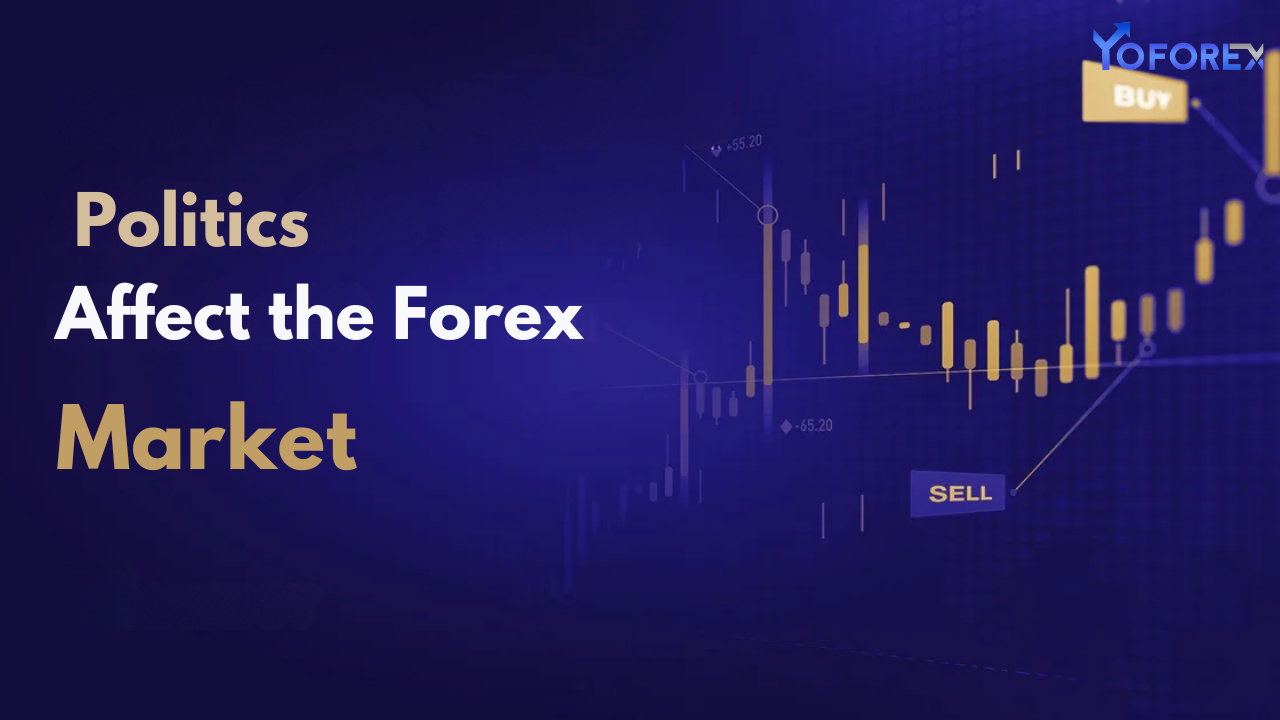Political elections are pivotal events that can shape the economic landscape of a country and have profound effects on its currency. In the forex market, traders closely monitor elections because they often lead to heightened volatility, shifts in sentiment, and potential changes in monetary or fiscal policies. Understanding how political elections influence forex market trends can help traders make informed decisions and adapt their strategies to capitalize on opportunities.

The Connection Between Politics and Currency Markets
Currency values are influenced by a variety of factors, including economic indicators, interest rates, and geopolitical events. Political elections, in particular, stand out as a major driver of forex market trends because:
- Uncertainty:
- Elections introduce uncertainty about future government policies, which can lead to increased volatility in currency markets.
- Policy Expectations:
- Different political parties often have distinct economic agendas. Traders anticipate how these policies might impact the economy and adjust their positions accordingly.
- Global Impact:
- In cases where a country’s economy has significant global influence, its elections can affect not only its own currency but also other major and minor currencies.
Key Ways Elections Influence Forex Markets
1. Increased Volatility
Political elections create an environment of uncertainty, as market participants speculate on the outcome and its potential effects on the economy. This uncertainty often leads to increased volatility in the forex market. For example:
- Tight Races:
- When elections are closely contested, market participants may become more cautious, leading to erratic price movements.
- Unexpected Outcomes:
- Surprises, such as Brexit or the election of Donald Trump in 2016, can cause sharp and unforeseen market reactions.
2. Shifts in Sentiment
Market sentiment plays a crucial role in driving currency prices. Elections can shift sentiment positively or negatively based on:
- Pro-Business Policies:
- Candidates advocating for economic growth, tax cuts, or deregulation may boost investor confidence, strengthening the currency.
- Uncertainty in Policy Direction:
- Candidates with unclear or extreme policy positions may erode confidence, leading to a weaker currency.
3. Impact on Monetary Policy
Election outcomes can influence central bank decisions, particularly if a new government prioritizes policies that conflict with existing monetary strategies. For instance:
- A government pushing for increased spending might pressure a central bank to raise interest rates to counter inflation, strengthening the currency.
- Alternatively, populist policies that prioritize short-term growth over fiscal discipline could weaken the currency.
4. Geopolitical Implications
Elections often have geopolitical consequences, especially when they involve major powers or regions. For instance:
- Trade Policies:
- A new administration’s stance on trade agreements or tariffs can affect currency pairs tied to export-driven economies.
- Diplomatic Relations:
- Changes in foreign policy can impact global trade dynamics and influence forex markets.
Examples of Election-Driven Forex Movements
- U.S. Presidential Elections (2016):
- Donald Trump’s unexpected victory caused significant volatility, with the Mexican Peso (MXN) plunging due to concerns about stricter U.S. trade policies.
- Brexit Referendum (2016):
- While not a traditional election, the Brexit vote’s outcome led to a sharp decline in the British Pound (GBP) as traders reacted to the uncertainty surrounding the UK’s exit from the EU.
- French Presidential Elections (2017):
- The victory of pro-EU candidate Emmanuel Macron calmed fears of a potential Eurozone breakup, strengthening the Euro (EUR).
How Traders Can Prepare for Election Periods
Navigating the forex market during elections requires careful planning and strategic execution. Here are key steps traders can take:
1. Monitor Polls and Sentiment
- Keep an eye on pre-election polls and surveys to gauge market expectations. While polls are not always accurate, they provide insights into likely outcomes.
2. Analyze Policy Proposals
- Study the economic policies of leading candidates or parties to assess their potential impact on the currency.
3. Use Technical and Fundamental Analysis
- Combine technical indicators with fundamental insights to identify key support and resistance levels, trend lines, and potential breakout points.
4. Be Cautious with Leverage
- Reduce leverage during election periods to manage the heightened risk associated with volatility.
5. Set Realistic Expectations
- Understand that elections can produce unpredictable outcomes. Avoid overcommitting to any single position.
6. Focus on Safe-Haven Currencies
- During periods of extreme uncertainty, traders often flock to safe-haven currencies like the USD, JPY, or CHF. Monitoring these pairs can reveal risk-off sentiment.
7. Use Risk Management Tools
- Implement stop-loss and take-profit orders to protect against sudden price swings.
Post-Election Forex Trends
After the dust settles, markets begin to digest the new political reality. Post-election trends are shaped by:
- Policy Implementation:
- The market’s focus shifts from campaign promises to the government’s ability to implement its policies.
- Economic Data:
- Traders assess how the new administration’s policies impact economic indicators such as GDP growth, unemployment, and inflation.
- Long-Term Trends:
- While volatility may subside post-election, the broader impact of policy changes can drive long-term currency trends.
Potential Risks for Forex Traders During Elections
- Whipsaw Movements:
- Prices may spike in both directions before settling, leading to stop-loss triggers.
- Liquidity Issues:
- Reduced liquidity during election periods can widen spreads and increase transaction costs.
- Misinterpreting Outcomes:
- Market reactions may not always align with logical expectations. For example, a perceived negative outcome might still strengthen a currency due to other factors.
Conclusion
Political elections are among the most influential events in the forex market, capable of driving volatility, shifting sentiment, and reshaping currency trends. For traders, understanding the dynamics of elections and their potential impact on forex markets is essential to navigating these periods effectively.
By staying informed, practicing sound risk management, and employing a combination of technical and fundamental analysis, traders can turn election-related volatility into profitable opportunities. While the uncertainty surrounding elections poses challenges, it also offers unique opportunities for those who are prepared to adapt to rapidly changing market conditions.

